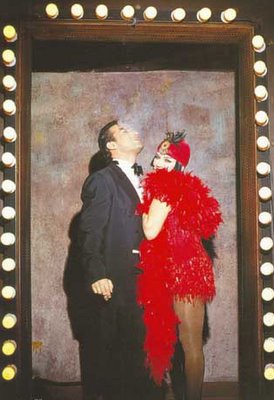Turkish Edith Piaf
 For London's Turkish community, this was surely a night out to remember. For those of us merely curious to check out Turkey's most celebrated female superstar, it was an unexpectedly wild and passionate reminder that there is some great music at the far end of the Mediterranean.
For London's Turkish community, this was surely a night out to remember. For those of us merely curious to check out Turkey's most celebrated female superstar, it was an unexpectedly wild and passionate reminder that there is some great music at the far end of the Mediterranean. Sezen Aksu is the undisputed queen of contemporary Turkish music. She has shown considerable bravery in linking traditional Turkish styles with western music and in tackling subjects that the authorities would prefer to have overlooked. In the 1970s she became the first Turkish woman to write and publicly perform her own songs. Since then she has built up a massive following in her home country, singing about everything from environmental issues to the ongoing civil war with the Kurds to painful emotional truths.
Making her first British appearance as part of the Barbican's Medfest series, she came on stage to find the packed-out audience already on their feet and cheering. They sang and clapped along as she launched into the first of her epic ballads, helped on stage by a belly-dancer in a bikini and shawl.
 Many of Aksu's adoring audience were girls young enough to be her daughters, and the boisterous group around me explained her attraction. "She's been married, she has had many boyfriends, and she expresses her emotions very strongly." Indeed. There were sections where her emotional, declamatory songs made her sound like a Turkish Edith Piaf. But in other songs she veered into Arabic-influenced styles or Western pop. (Her song Simarik has been reworked as the Holly Valance hit, Kiss Kiss.) She was backed by three young backing singers and a 16-piece band that matched traditional instruments like the oud or pipes against bass and guitar, keyboards and a six-piece string section, and they attempted to switch from ancient to modern and back again, sometimes within the same song. Inevitably, the traditional pieces were far more original than some of the synth-backed ballads, but the audience sang and danced through them all.
Many of Aksu's adoring audience were girls young enough to be her daughters, and the boisterous group around me explained her attraction. "She's been married, she has had many boyfriends, and she expresses her emotions very strongly." Indeed. There were sections where her emotional, declamatory songs made her sound like a Turkish Edith Piaf. But in other songs she veered into Arabic-influenced styles or Western pop. (Her song Simarik has been reworked as the Holly Valance hit, Kiss Kiss.) She was backed by three young backing singers and a 16-piece band that matched traditional instruments like the oud or pipes against bass and guitar, keyboards and a six-piece string section, and they attempted to switch from ancient to modern and back again, sometimes within the same song. Inevitably, the traditional pieces were far more original than some of the synth-backed ballads, but the audience sang and danced through them all. This grand Turkish celebration was extended to include the rousing opening band of Macedonian Gypsies, the Kocani Orkestar. Introduced as the "masters of speed folk", they stretched out in a line across the stage, with eight brass players alongside a singer, drummer and accordion player. Stomping songs featured bass lines on the tuba and frantic solos from clarinet, sax and trumpet. It was a night of unexpected musical passion.
(June 19, 2002, Robin Denselow, Guardian)




0 Yorum Ekle:
Yorum Gönder
<< Home